
Heinrich Wilhelm "Heinz" Rühmann was a German film actor who appeared in over 100 films between 1926 and 1993. He is one of the most famous and popular German actors of the 20th century, and is considered a German film legend. Rühmann is best known for playing the part of a comic ordinary citizen in film comedies such as Three from the Filling Station and The Punch Bowl. During his later years, he was also a respected character actor in films such as The Captain from Köpenick and It Happened in Broad Daylight. His only English-speaking movie was the 1965 Ship of Fools.

Erich Gustav Otto Engel was a German film and theatre director.
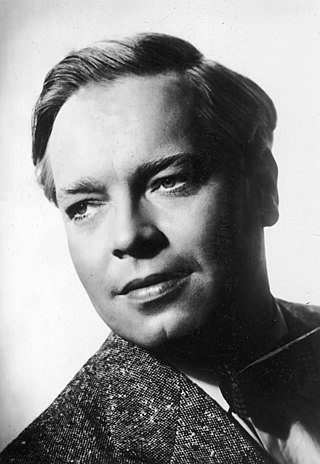
Hans Brausewetter was a German stage and film actor of the silent era. He appeared in more than 130 films between 1922 and 1945. He appeared in the 1923 film The Treasure, which was directed by Georg Wilhelm Pabst. Brausewetter died from injuries sustained in a bomb blast in Berlin during the final days of the Second World War.
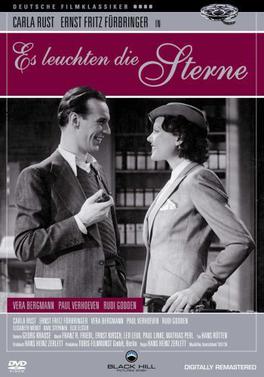
The Stars Shine is a 1938 German musical revue directed by Hans H. Zerlett and written by Zerlett and Hans Hannes.
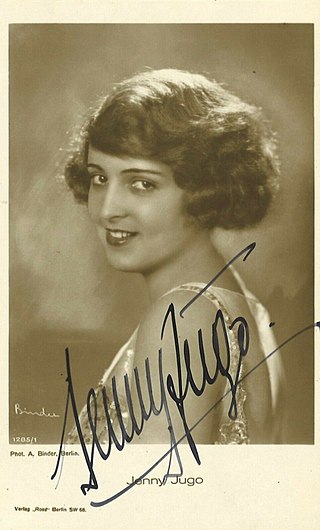
Jenny Jugo was an Austrian actress. She appeared in more than fifty films between 1925 and 1950.
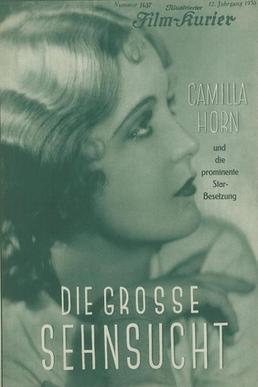
The Great Longing is a 1930 German comedy film directed by Steve Sekely in his directorial debut and starring Camilla Horn, Theodor Loos, and Harry Frank. It was shot at the EFA Studios in Berlin. The film's sets were designed by the art directors Hans Sohnle and Otto Erdmann. It was distributed by the German branch of Universal Pictures.
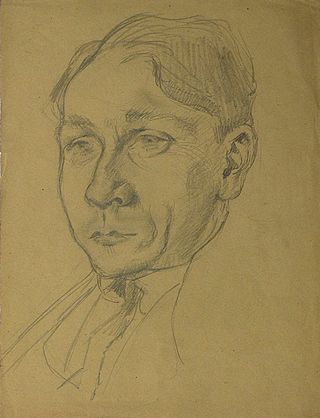
Paul Kemp was a German stage and film actor. Kemp worked as a piano accompaniest for silent films, and then served as an ambulance driver on the Western Front during the First World War. Post-war he moved into acting on the stage in Düsseldorf and Hamburg. His career really took off when he moved to Berlin in 1929, appearing in the hit stage version of the novel Menschen im Hotel by Vicki Baum. He made his film debut in 1930, shortly after the introduction of sound film. He appeared prolifically in German and Austrian films until his death in 1953.

A Student's Song of Heidelberg is a 1930 German musical film directed by Karl Hartl and starring Hans Brausewetter, Betty Bird and Willi Forst. It marked Hartl's directoral debut. The film is in the tradition of the nostalgic Old Heidelberg.

Five from the Jazz Band is a 1932 German musical comedy film directed by Erich Engel and starring Jenny Jugo, Rolf von Goth, and Fritz Klippel. It is based on a 1927 play of the same name by Felix Jackson, and was produced by the German subsidiary of Universal Pictures. It was shot at the Johannisthal Studios in Berlin. The film's sets were designed by art director Erich Czerwonski.
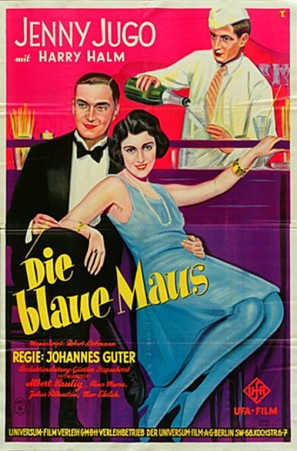
The Blue Mouse is a 1928 German silent comedy film directed by Johannes Guter and starring Jenny Jugo, Harry Halm, and Brita Appelgren. The film was distributed in England by Gaumont in a sound version. While the sound version had no audible dialog, it was released with a synchronized musical score with sound effects using both the sound-on-disc and sound-on-film process.

Six Girls and a Room for the Night is a 1928 German silent film directed by Hans Behrendt and starring Georg Alexander, Ilse Baumann and Jenny Jugo. It was shot at the Tempelhof Studios in Berlin. The film's sets were designed by the art director Oscar Friedrich Werndorff.

Miss Madame is a 1934 German comedy film directed by Carl Boese and starring Jenny Jugo, Paul Hörbiger, and Olga Limburg. The film's sets were designed by the art director Erich Czerwonski. It was based on play of the same title by Ludwig Fulda.

A Song for You is a 1933 German musical comedy film directed by Joe May and starring Jan Kiepura, Jenny Jugo and Paul Kemp. It was shot at the Babelsberg Studios in Berlin and on location in Naples and Vienna.The film's sets were designed by the art director Werner Schlichting. It was remade in Britain the following year as My Song for You.

Don't Dream, Annette is a 1949 German comedy film directed by Eberhard Klagemann and Helmut Weiss and starring Jenny Jugo, Max Eckard and Karl Schönböck. It was made by DEFA in the Soviet Zone of Germany which was soon afterwards to become East Germany. The film's sets were designed by the art directors Wilhelm Depenau, Otto Erdmann and Kurt Herlth.
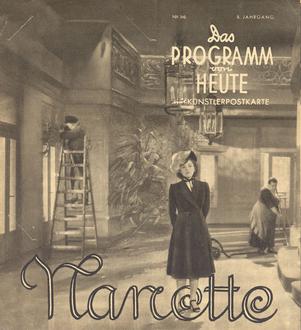
Nanette is a 1940 German musical film directed by Erich Engel and starring Jenny Jugo, Hans Söhnker and Albrecht Schoenhals.

Dangerous Game is a 1937 German comedy film directed by Erich Engel and starring Jenny Jugo, Harry Liedtke and Karl Martell.

The Indiscreet Woman is a 1927 German silent comedy film directed by Carl Boese and starring Jenny Jugo, Maria Paudler and Georg Alexander.
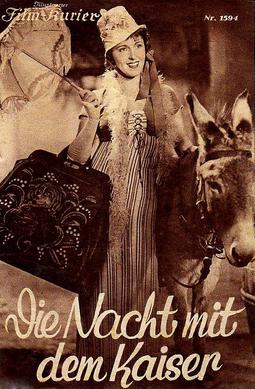
The Night With the Emperor is a 1936 German historical comedy film directed by Erich Engel and starring Jenny Jugo, Richard Romanowsky, and Friedrich Benfer. It was shot at the Johannisthal Studios of Tobis Film in Berlin. The film's sets were designed by the art directors Karl Haacker and Hermann Warm. The film is set in 1808 at the Congress of Erfurt.
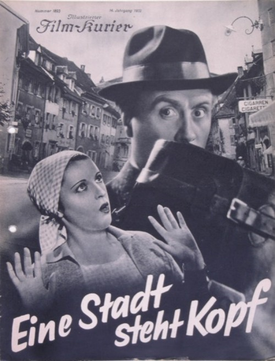
A City Upside Down is a 1933 German comedy film directed by Gustaf Gründgens and starring S.Z. Sakall, Jenny Jugo and Hermann Thimig. It is based on the 1836 play The Government Inspector by Nikolai Gogol. A separate Czech adaptation of the story The Inspector General was made the same year.
The Flower Girl from the Grand Hotel is a 1934 German drama film directed by Carl Boese and starring Elsa Merlini, Georg Alexander and Hans Brausewetter. The film's sets were designed by the art directors Gustav A. Knauer and Alexander Mügge. A separate Italian-language version The Lucky Diamond was also produced starring Merlini with a different supporting cast.



















